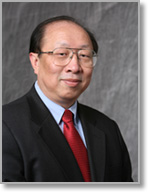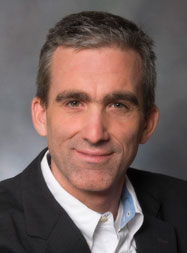
Keynote Talks
Keynote (Day 1): Prof. Wei Zhao, Rector, University of MacauTalk Title: WInternet: From Net of Things to Internet of Things Abstract: Internet of Things (IoT) is a networking infrastructure for cyber-physical systems. With IoT, physical objects should be seamlessly integrated into an Internet-like system so that the physical objects and cyber-agents can interact each other in order to achieve mission-critical objectives. Given its tremendous application potential, IoT has become popular in recent years, attracting great attentions from both academic research and industrial development. In this talk, we will first focus on fundamental issues related to IoT. We address principles that should guide research and development of IoT. We will then present several approaches that may lead to implementation of IoT and analyze their advantages and disadvantages. We will show an implementation of IoT called "WInternet" and demonstrate its application. Finally, we will discuss critical issues that must be addressed in order to fully realize the objectives and potentials of IoT. Bio:
Professor Wei Zhao completed his undergraduate studies at Shaanxi Normal University, China, in 1977, and then received his MSc and PhD degrees in Computer and Information Sciences at the University of Massachusetts at Amherst, USA in 1983 and 1986, respectively. In 2008, Professor Zhao was appointed as the 8th Rector for the University of Macau. Prior to this position, Professor Zhao also served as the Director of the Division of Computer and Network Systems at the US National Science Foundation, the Dean of Science at Rensselaer Polytechnic Institute, and the Senior Associate Vice President of Research at Texas A&M University, making him one of the few scholars from Mainland China who have ever held such senior posts in the US federal government and high education institutions.
|
 |
Keynote (Day 2): Prof. Edward W. Knightly, Professor in Electrical and Computer Engineering, Rice UniversityTalk Title: New Spectrum and Services for the Next Wireless Internet Abstract: In this talk, I will address challenges and research opportunities in wireless networks spanning from sub-GHz UHF bands up to visible light communication (VLC). I will make the case that new frequencies should not be viewed simply as more spectrum to alleviate the spectrum shortage, but that they enable vastly different wireless network architectures, services, and spectrum sharing models. Below 1 GHz, worldwide, unused UHF TV channels are increasingly being repurposed for unlicensed wireless Internet, a capability often termed "Super WiFi" because UHF bands have much greater range and penetration compared to today's GHz-band WiFi. I will describe the global possibilities for UHF-band wireless networks to compliment GHz-band networks. Likewise, high-speed modulation of LEDs enables repurposing light sources as high-speed communication sources. I will describe how VLC enables new communication modalities from high-speed WLANs to vehicular safety networks. Throughout, I will draw on lessons learned from experiments, prototypes, and measurements from an operational urban access network in Houston, Texas. Bio: Edward Knightly is a Professor of Electrical and Computer Engineering at Rice University in Houston, Texas. He received his Ph.D. and M.S. from the University of California at Berkeley and his B.S. from Auburn University. He is an IEEE Fellow, a Sloan Fellow, and a recipient of the National Science Foundation CAREER Award. He received the best paper award from ACM MobiCom 2008 and serves on the IMDEA Networks Scientific Council. |
 |